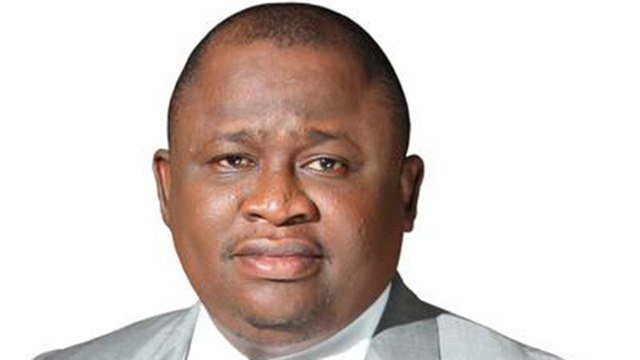Sir: I congratulate President Bola Ahmed Tinubu for decisive actions that have produced measurable progress on long-standing challenges in the Niger Delta.
These include insecurity and oil theft; the Ogoni remediation and potable-water rollout; the de-escalation of the Rivers State political crisis and the rebound in Nigeria’s crude-oil production.
The numbers now back the narrative: community-led security, targeted federal interventions, and renewed focus on environmental justice are restoring confidence in the Niger Delta. I salute the security, environment, and petroleum teams for these outcomes and urge sustained momentum.
The President’s finance and accounting background, unusual courage, deep understanding of business and politics, and tenacity of purpose – together with the support of stakeholders across the region – have been instrumental to these achievements within a short period.
Recent data show a decisive turn. The Nigerian Upstream Petroleum Regulatory Commission (NUPRC) reports that daily crude losses fell to 9,600 barrels per day in July 2025 – the lowest since 2009 and roughly a 90 per cent drop from 2021 levels – clear proof that our strategy against oil theft is working.
Complementing this, a sustained two-year crackdown by the Nigerian Navy yielded 76 vessels seized, 242 suspects arrested, and the destruction of over 800 illegal refining sites, demonstrating how persistent patrols and tighter inter-agency coordination are degrading criminal networks. In Ogoniland, the clean-up has moved from promises to projects.
In August 2025, the President reconstituted HYPREP’s Governing Council and Board of Trustees to strengthen oversight and delivery. Within days, the Federal Government and HYPREP commissioned four potable-water schemes – in Bodo, Uegwere-Boue, Taabaa, and Eteo – advancing UNEP’s emergency-water mandate and expanding access to safe, reticulated water across Ogoni communities.
HYPREP’s mid-2025 scorecard records 50 remediation lots closed across 17 UNEP-assessed sites with NOSDRA certification, about 53 per cent of 1,700 hectares of shoreline cleanup delivered, and a pilot mangrove restoration – 93 per cent complete.
Public-health capacity is also being rebuilt: the 43-bed Buan Cottage Hospital is 93 per cent complete, and the 100-bed Ogoni Specialist Hospital in Kpite has reached 76 per cent, with a technical committee inaugurated to ready operations. To anchor these gains in science, WHO-IARC and HYPREP launched a human biomonitoring/health-impact study in July 2025 to guide long-term interventions.
On reconciliation, the June 12, 2025 posthumous pardon of the “Ogoni Nine” has reopened dialogue; while symbolically significant, I recognize that some groups continue to press for full exoneration and stronger guarantees before any discussion on restarting oil production -underscoring the need for inclusive, ongoing engagement.
In Rivers State, the December 18-19, 2023 eight-point peace accord brokered by President Tinubu helped de-escalate a destabilising political crisis, safeguarding institutions in our most strategic oil-producing state.
As security has improved, production is recovering: OPEC secondary sources put Nigeria’s output at 1.559 million barrels per day in July 2025 (up from 1.543 mbpd in June), while NUPRC recorded a broader 1.78 mbpd for July-reflecting additional streams-with both sets attributing gains in part to stronger security along the value chain.
In the wider Gulf of Guinea, maritime security trends also point in the right direction.
Independent monitoring notes historically low piracy levels in 2022 and 2024, with Nigeria’s Deep Blue assets and enhanced regional patrols contributing to deterrence. Even as the International Maritime Bureau flagged a rise in global incidents in early 2025, our trajectory shows that sustained patrols, community collaboration, and intelligence-led enforcement remain essential to consolidating hard-won gains.
My call to stakeholders is to encourage continued funding for community-based pipeline surveillance, transparency in remediation and health spending, and rigorous performance tracking across security and clean-up programmes. Sustaining these gains will require data-driven accountability and steady engagement with host communities.
I also appeal to the National Assembly, leaders of the Niger Delta, and all stakeholders to continue supporting the President in delivering sustainable development across the zone.
Dideolu Falobi is an engineer and public-spirited advocate for infrastructure renewal, youth opportunity and sustainable development in Osun State.






